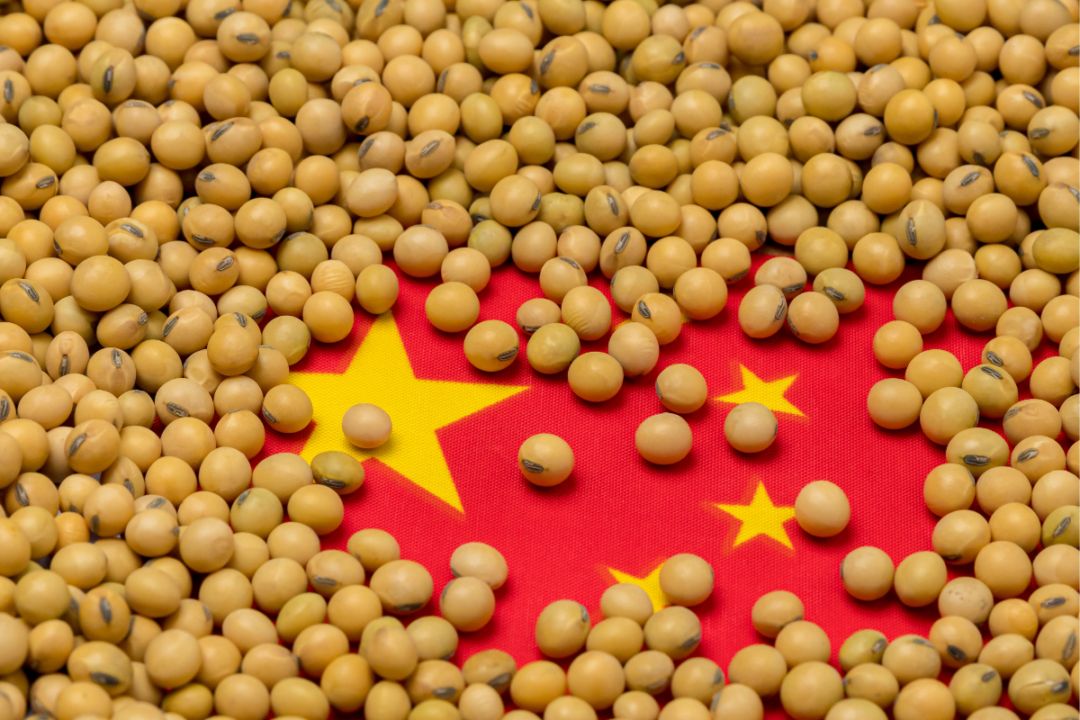China Says Doesn’t Need US Grain as Brazil Soybeans Pour In

China’s grain supply won’t be affected by a loss of US feed grain and oilseed imports, thanks to abundantly available substitutes on the global market and sufficient reserves at home, a top official from the country’s state planner told reporters on Monday.
The world’s top buyer of soybeans is set to receive a mammoth amount of the oilseed from South America in the second quarter, easing a supply shortage and helping to further cool animal feed prices.
Inbound shipments, mainly from Brazil, Argentina, and Uruguay, are poised to climb to more than 30 million tons during the period from April to the end of June, Yin Ruifeng, who is affiliated with China’s agriculture ministry, wrote separately in an article. That would be a record for the quarter, according to Bloomberg calculations.
China has moved to diversify its sources of grains in recent years, and has shifted to buying more Brazilian soybeans as the trade war sparked by President Donald Trump’s tariffs makes purchases of US crops unviable.
American grains like soybeans, corn and sorghum “can be easily substituted and the supplies on the international market are quite sufficient,” said Zhao Chenxin, depute director of the National Development and Reform Commission. “Even without purchases of US feed grains and oilseed, there won’t be much impact on China’s grain supply.”
China’s Soybean Imports Poised to Rebound
Increase in shipments set to further cool domestic soymeal prices
Some Chinese companies that crush soybeans into cooking oil and animal feed, particularly for the nation’s pig herd, had been forced to suspend operations after Brazil’s slow start to its harvest and logistics constraints delayed shipments from the country, Yin wrote in the article, which was posted on the agriculture ministry’s information center website.
Soymeal prices rallied in Dalian to the highest level since December 2023 this month, after March soybean imports plunged to the lowest level in more than a decade. Meanwhile, stockpiles of the imported oilseed at Chinese ports have also tumbled and are near a five-year low.
Read also
AmSpec – Partner of BLACK SEA GRAIN.KYIV-2026
The Oilseed Risk Index: Ukraine & Black Sea
Black Sea & Danube Wheat Market 2026: Weather Risks, Trade Shifts and Regiona...
Brazil’s growing dominance in global soybean markets continues to raise concerns a...
Syngenta registers X-Terra hybrid wheat in France
Write to us
Our manager will contact you soon



